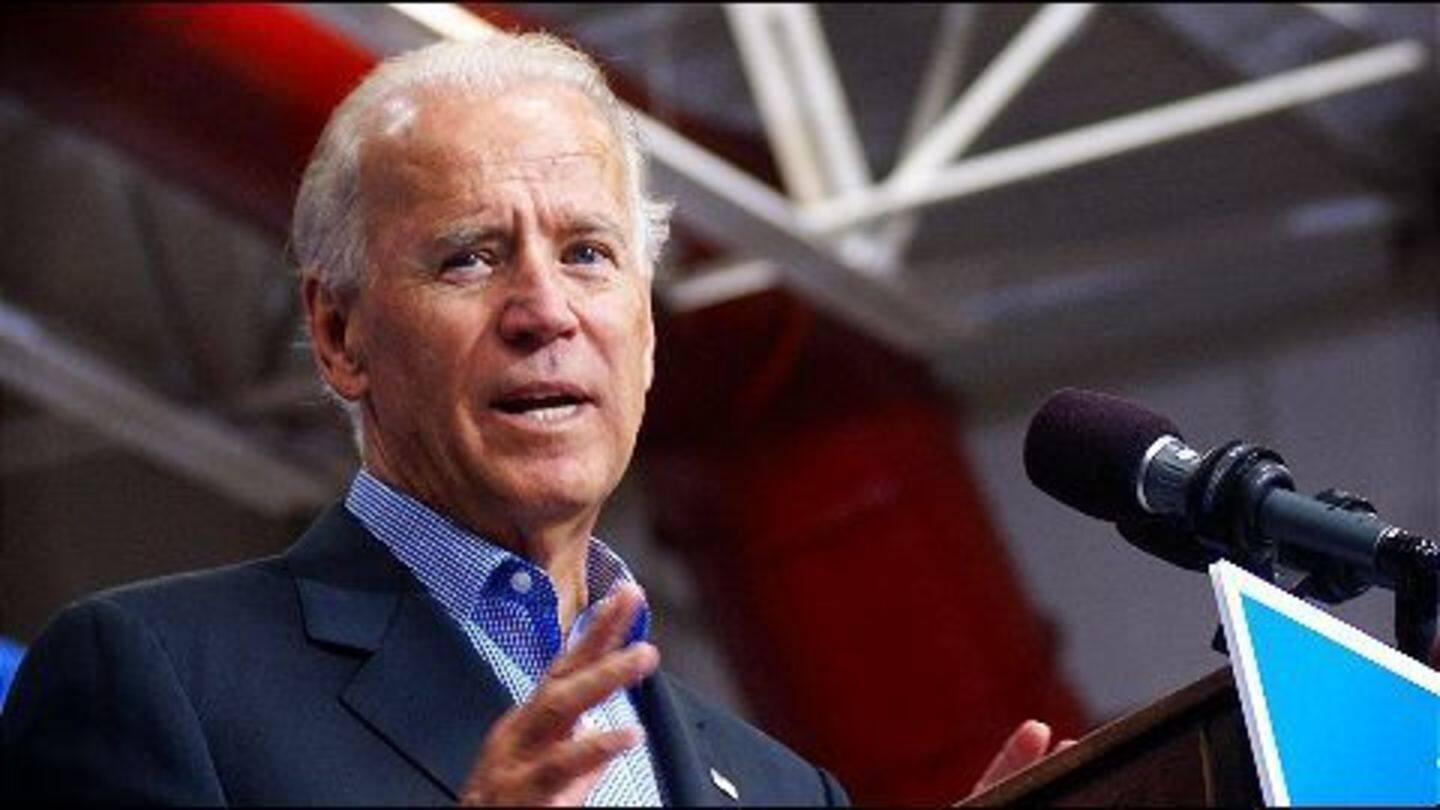
US Vice President's surprise visit to Iraq
What's the story
Joe Biden, US Vice-President, made an unannounced visit to Iraq to urge the leaders to resolve the political-crisis that is hindering the war against Islamic State. He met with Iraqi Prime Minister Haider Al-Abadi at Republican Palace to discuss the crippling political situation in Iraq. Amid protests demanding political reforms, Biden is expected to meet other Iraqi politicians and US personnel deployed in Iraq.
Historical
Iraq invaded by the US
In 2003, Iraq was invaded by the US primarily to fight a war against Saddam Hussein's Ba'athist government. The invasion fuelled instability between Sunnis and Shias in Iraq. The invasion concluded with the capture of Baghdad by the US.
2005
Political crisis in Iraq
In 2005, Iraq had elected a transitional National Assembly of 275 members to replace the US-installed interim Government. The newly-formed government had drafted a permanent constitution, which was controversial, after several months of negotiations. The Iraqi Sunnis had opposed the controversial constitution but, it was approved as there was a provision that lawmakers could amend it after a permanent government was elected in 2006.
2006
Coalition-backed democratic government's failure
In December 2005, the Iraqis had voted to elect a permanent National Assembly and a new government for four years. After four months, Shiite Nouri al-Maliki was elected as the Prime Minister and a national-unity government with a 36-member Cabinet was formed. As the new coalition-backed democratic government had failed to bridge the Shia-Sunni differences, religious factions tried to gain control over each other.
2006
Sectarian violence continues to rise in Iraq
In 2006, sectarian violence in Iraq due had increased because of which hundreds of people died each day from suicide bombings, roadside attacks, and bomb blasts. PM Al-Maliki had revealed a US-backed national reconciliation plan, under which amnesty was offered to those who had not committed any crimes or terrorist acts, and some insurgents had surrendered. Despite Al-Maliki's attempts, sectarian violence continued to rise.
Protests
Protests for separation, minorities at risk
Some groups had protested for a separate nation for Iraqi Shias, and for dividing Iraq into Kurdistan (North), Iraq (center), and Basra (South). Islam extremists had started eliminating minor communities like Mandaean and Yazidi as a part of their 'ethinic cleansing'. Sunnis fled Basra while Shias were driven out of Samarra and Baquba, and sectarian violence had broken out in every corner of Iraq.
2014
Islamic State gains control over northern Iraq
In 2014, Salafi (Sunni) Jihadist militant group-Islamic State of Iraq and the Levant had proclaimed itself as a worldwide caliphate. ISIL had gained control over much of northern Iraq; ISIL was known for its brutal violence, and extreme interpretation of the Sharia law and Islamic faith. Being a Sunni group, ISIL targeted Shias along with other religions/communities like Assyrians, Armenian Christians, Yazidis, Mandaeans, etc.
19 Jan 2016
Over 19,000 killed, 36,000 injured since 2014
A joint report was released by UN Assistance Mission for Iraq and UN High Commissioner for Human Rights to list the number of atrocities committed by ISIL and sectarianism. The report stated that over 19,000 were killed and over 36,000 were wounded between 2014-15. Thousands had died due to lack of access to food, water, and medical care, which wasn't listed in the report.
Quote
Civilians are suffering terribly in Iraq
Zeid Ra'ad Al Hussein-UN Rights Chief stated: "Even the obscene casualty figures fail to reflect accurately exactly how terribly civilians are suffering in Iraq. Countless others have died from the lack of access to basic food, water or medical care."
Personal
Rising violence as result of unstable government
According to experts, the rising violence is a reflection of the unstable Iraqi government, which is affecting the war against ISIL. On 18 April'16, Iraqi Government recalled some troops fighting ISIL because of clashes with the protestors demanding political reforms.